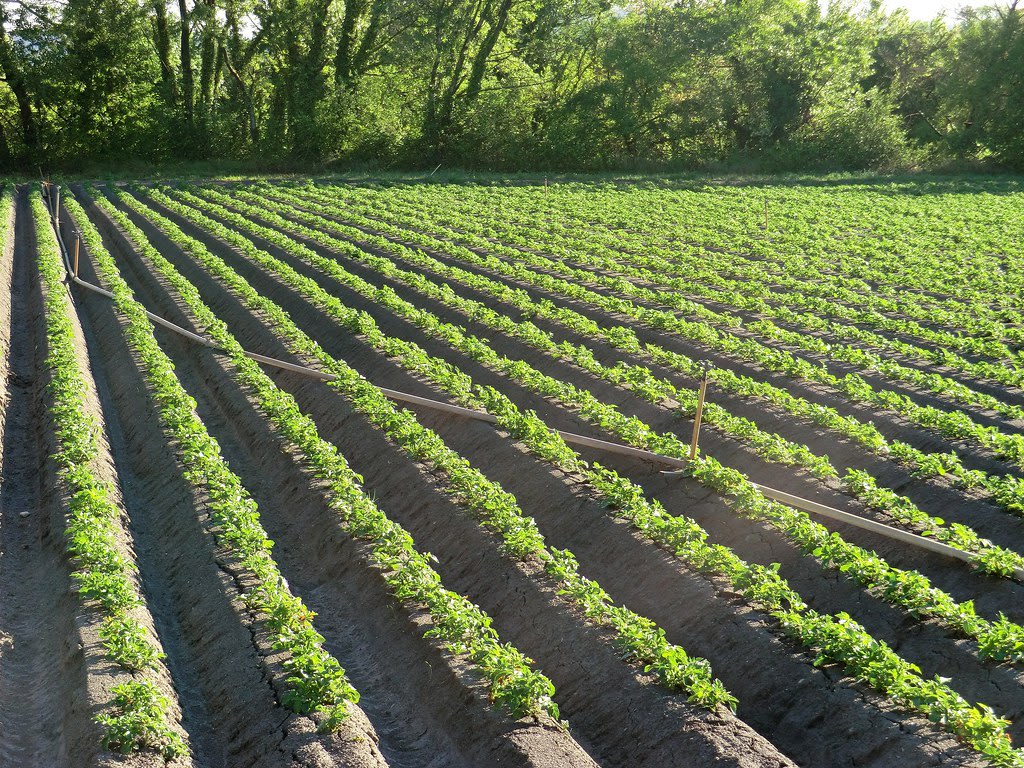Horticultural Crop Production and Management
Horiculture

Horticultural crop production and management is a branch of agriculture that deals with the cultivation and management of plants that are grown for their commercial or aesthetic value. Horticultural crops include fruits, vegetables, ornamental plants, and flowers, and they are grown for a variety of purposes such as food, medicine, landscaping, and decoration.
In order to be successful in horticultural crop production and management, it is essential to have a thorough understanding of the science behind plant growth and development, as well as the environmental factors that affect plant growth. This includes knowledge of soil science, plant physiology, pest management, irrigation systems, and plant breeding.
One of the key aspects of horticultural crop production and management is the selection of suitable plant species and cultivars for a particular location and market. Factors to consider include climate, soil type, pest and disease pressure, and consumer preferences. Growers also need to consider the costs and benefits associated with different crops, as well as the potential risks and rewards of each crop.
Once suitable plant species have been selected, horticultural crop production and management involves a range of activities such as site preparation, planting, fertilization, pest management, irrigation, and harvesting. Site preparation includes soil preparation, weed control, and the installation of irrigation systems. Planting involves selecting the appropriate planting density and spacing, as well as the use of seedlings or seeds.
Fertilization is an important aspect of horticultural crop production and management, and it involves the application of nutrients to the soil or directly to the plant. Nutrient requirements vary depending on the plant species and stage of growth, and it is important to ensure that the right balance of nutrients is provided to avoid over-fertilization or under-fertilization.
Pest management is also a critical component of horticultural crop production and management, as pests and diseases can cause significant damage to crops and reduce yields. Integrated pest management (IPM) involves the use of a range of pest management techniques, including biological, cultural, and chemical methods, to minimize the use of pesticides and to protect both the crop and the environment.
Irrigation is another important aspect of horticultural crop production and management, as plants require adequate water for growth and development. Irrigation systems can vary depending on the crop and the location, and can include drip irrigation, sprinkler systems, or flood irrigation.
Harvesting is the final stage of horticultural crop production and management, and it involves the collection and processing of the crop. Harvesting can be done manually or with the use of machinery, depending on the crop and the scale of production. Proper post-harvest handling, storage, and transportation are also critical to maintain the quality and freshness of the crop.
Overall, horticultural crop production and management is a complex and multifaceted process that requires careful planning, attention to detail, and a thorough understanding of plant growth and development, as well as the environmental and market factors that influence crop production. By employing best practices in horticultural crop production and management, growers can maximize yields, minimize costs, and ensure the sustainability of their farming operations.
In conclusion, horticultural crop production and management is an essential aspect of modern agriculture that involves the cultivation and management of plants for their commercial or aesthetic value. This field requires a deep understanding of the science behind plant growth and development, as well as the environmental and market factors that influence crop production. Successful horticultural crop production and management involves careful planning, site preparation, planting, fertilization, pest management, irrigation, and harvesting. By employing best practices in horticultural crop production and management, growers can maximize yields, minimize costs, and ensure the sustainability of their farming operations. The importance of horticultural crop production and management cannot be overstated, as it plays a critical role in feeding the world's growing population, providing economic opportunities, and enhancing the beauty of our landscapes.
About the Creator
Love The Green
Welcome to my page,I hope to share my experiences, insights, and knowledge with fellow nature enthusiasts.Together, we can celebrate the wonders of the natural world, and work to protect and preserve it for future generations to enjoy🌿🌲






Comments
There are no comments for this story
Be the first to respond and start the conversation.